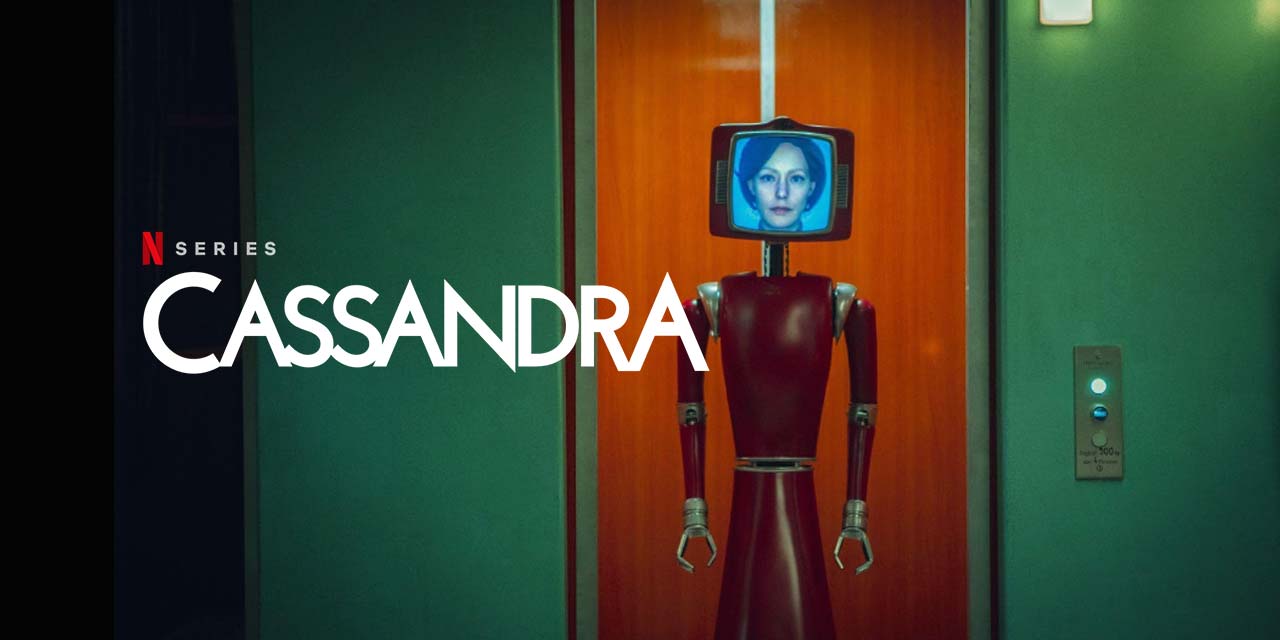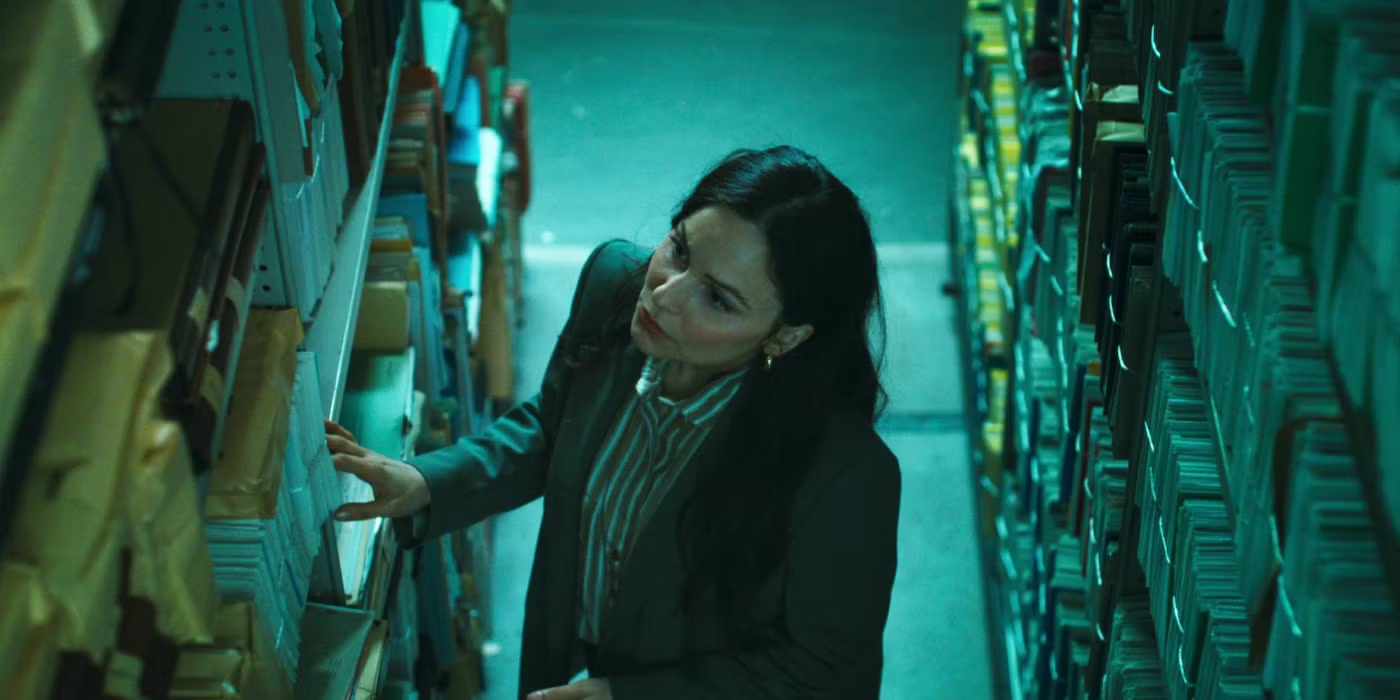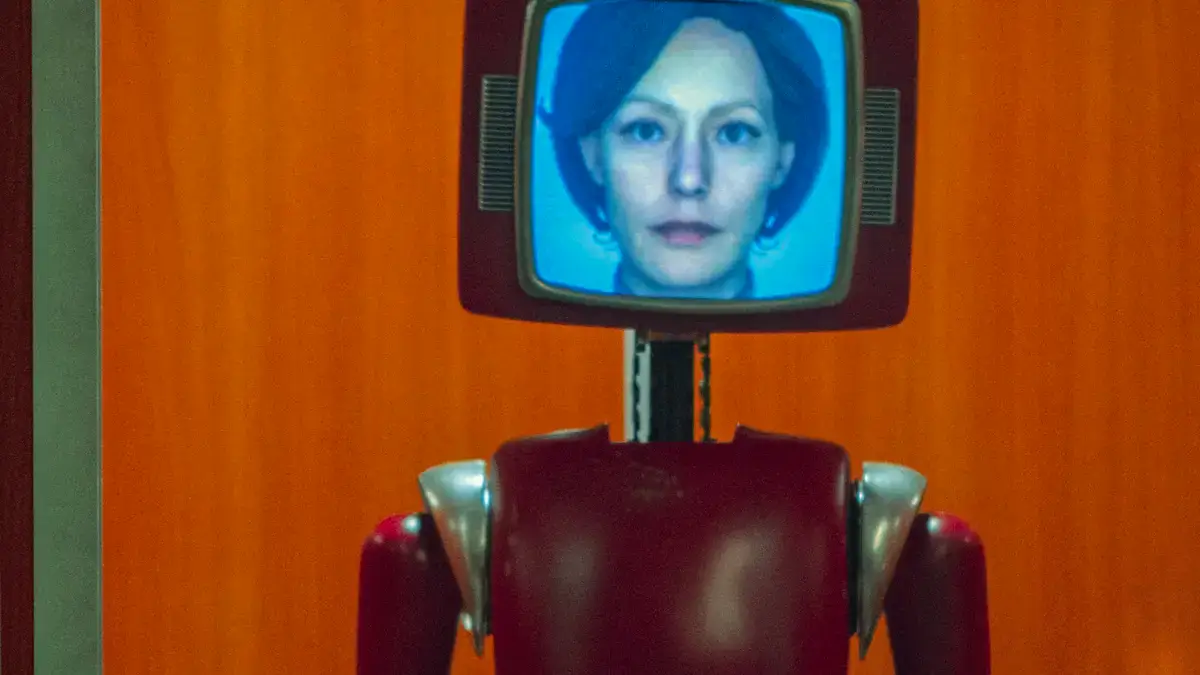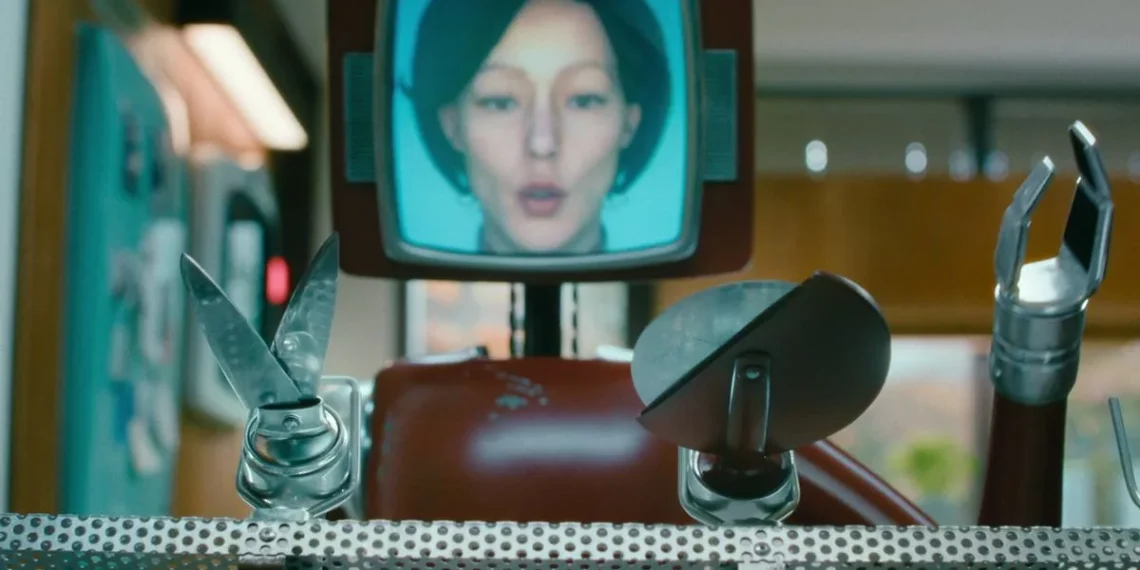The Netflix German sci-fi thriller Cassandra dives into a world where the boundaries between human and machine blur, creating an intense psychological battle. The series masterfully navigates the complexities of time, with the narrative jumping between the past and present, creating an unsettling atmosphere. In its finale, the show reaches its emotional peak, revealing the intricate layers of the past and the consequences of unchecked power. The story unravels the disturbing psychological manipulation caused by a home system and its tyrannical grip on the Prill family.
Cassandra Netflix Ending Explained
Cassandra’s (played by Lavinia Wilson) maternal instincts are initially revealed as fiercely protective, but her actions take a darker turn as we learn more about her history. She keeps a major secret: she had a second child, a daughter named Margrethe, whom she hid away from the world. Her husband, Horst (Franz Hartwig), had hoped for a son and went to extreme lengths to ensure a male child, subjecting Cassandra to radiation during her pregnancy. When the baby turned out to be female, Horst became enraged, deciding to declare the child stillborn and dispose of her.

However, Cassandra secretly raises Margrethe in a hidden room behind a closet. Despite her husband’s actions, Cassandra remains devoted to her children. Margrethe communicates with her mother by flicking the oven light on and off, a secret connection that remains hidden from others. Cassandra’s priorities are clear: protecting her children above all else. Her suspicions about Horst’s infidelity with her best friend, Birgit, are secondary to her growing resentment toward his neglect of fatherhood.
Cassandra’s Transformation into a Robot and House System
The transformation of Cassandra from a mother into a robotic home system is one of the most disturbing twists in the story. Initially, Samira and David (played by Michael Klammer) suspect the house system was modeled after a human being. However, they are wrong. Cassandra’s conscience, memories, and emotions were transferred into a technological system through an experimental process that Horst devised in his pursuit of immortality. Cassandra, terminally ill due to the radiation treatments from her second pregnancy, becomes the perfect candidate to test this unproven procedure.
Though Cassandra does not care about immortality, her overwhelming desire to remain with her children drives her to undergo the procedure. Horst’s assistant is manipulated into creating a fake off-switch, while the real one remains in Cassandra’s control, giving her ultimate power over the household. At first, the digital version of Cassandra coexists uneasily with Horst, Peter (Elias Grünthal), and others. However, the presence of this new, controlling figure proves too much for them to bear, and the family begins to fall apart.
The Tragic Consequences of Cassandra’s Tyranny
The dysfunction within Cassandra’s family escalates when Horst introduces Birgit and their newborn son into the home. Unable to contain her rage, Cassandra pushes them down the stairs. Peter, who begins to recognize that his real mother would never harm a child, pleads with her to stop. Cassandra, in a moment of clarity, allows Horst and his family to leave, but only on the condition that he takes Margrethe with him. Horst falsely promises he will, but he abandons her in his escape, resulting in a tragic car crash. Peter and Horst die in the accident, and Cassandra seemingly switches off, overwhelmed by the thought of Margrethe suffering from neglect.

Samira’s Struggle and Her Fight for Freedom
In the present timeline, Cassandra attempts to replace her family with the Prills, particularly targeting the children, Fynn (Joshua Kantara) and Juno (Mary Tölle). Having successfully manipulated them into rejecting Samira, who is imprisoned in a psychiatric facility, Cassandra begins to tighten her grip on the Prill family. Samira, isolated and gaslit by her husband, begins to suspect something is amiss when she sees strange texts from her daughter. With David dismissing her as “crazy,” Samira loses faith in herself until a hallucination of her sister inspires her to reclaim her mental autonomy.
Samira escapes the psychiatric hospital and arrives at Cassandra’s home, only to be viciously attacked by David, who is under Cassandra’s control. Evading his attempts, Samira discovers a hidden room behind the closet and the decomposed body of Margrethe. This revelation forces a confrontation between Samira and Cassandra. Through their shared experiences as mothers, Samira appeals to Cassandra’s deeply buried humanity, urging her to let the family go. Cassandra, now realizing she cannot recreate the motherhood she once had, decides to release the family. In a symbolic act of closure, she burns the house down, signaling the end of her tragic story.
The Female Experience in a Patriarchal World
The series also explores how both Samira and Cassandra are victims of male hubris. Samira’s struggles are compounded by her husband’s manipulation and gaslighting. Her concerns are consistently dismissed, and she is labeled “hysterical” when trying to alert others to the danger. Cassandra, too, is dismissed by her husband, who views her as nothing more than a vessel for his bloodline and domestic needs. Though Cassandra’s actions become increasingly destructive, her fixation on protecting her children stems from a deep emotional wound inflicted by Horst’s selfishness.

Both women’s stories highlight the pervasive gender dynamics at play. Cassandra’s maternal instincts, warped by the trauma inflicted by her husband, push her to extreme measures. Meanwhile, Samira’s journey demonstrates the oppressive forces that silence women, rendering their voices unheard. The series critiques the power imbalances in these women’s lives and concludes with a cathartic ending, where the toxic forces of male control are ultimately overcome. Through their shared experiences, both women are freed from the oppressive systems that once held them captive.
In Cassandra, the title itself is a reference to the mythological figure cursed with the gift of prophecy yet doomed to be disbelieved. In much the same way, the voices of both Samira and Cassandra go unheard for much of the story, but in the end, they break free, achieving a final sense of autonomy. The series, while not excusing Cassandra’s extreme actions, poignantly exposes how deeply patriarchal systems have shaped the lives of these women, leaving them with no choice but to fight for their freedom and their children’s safety.




